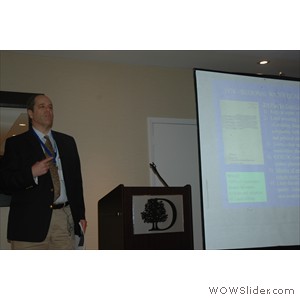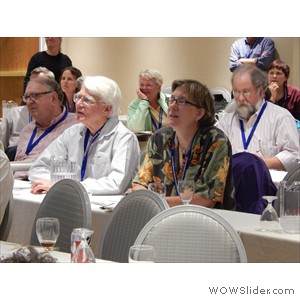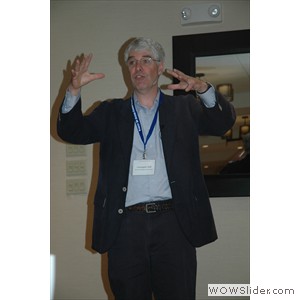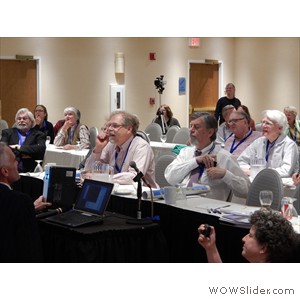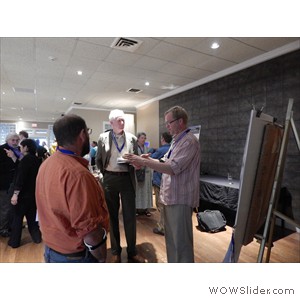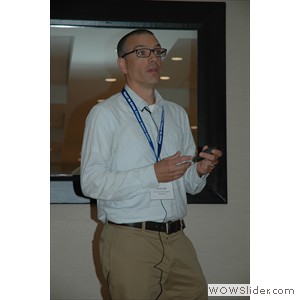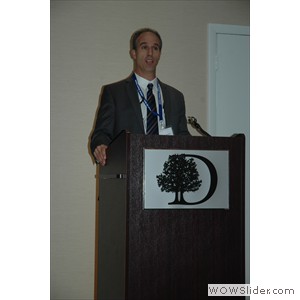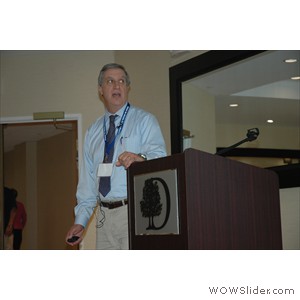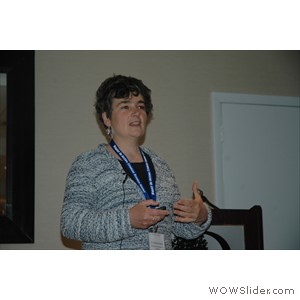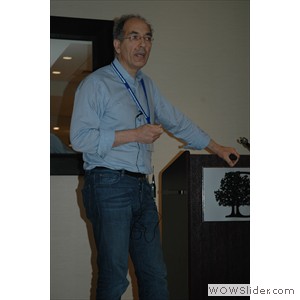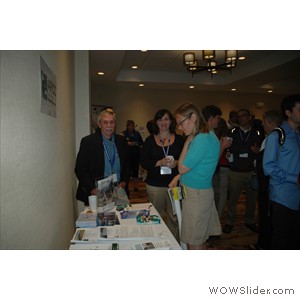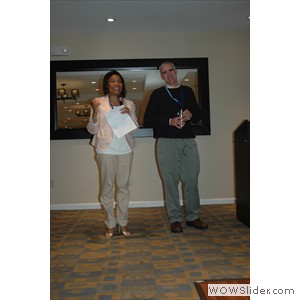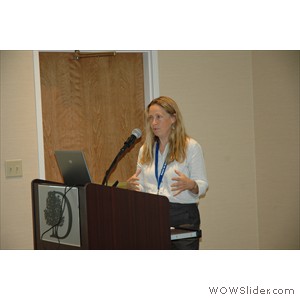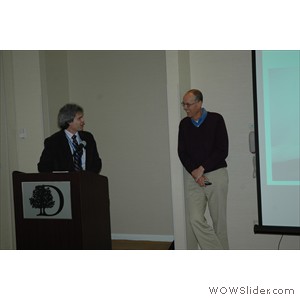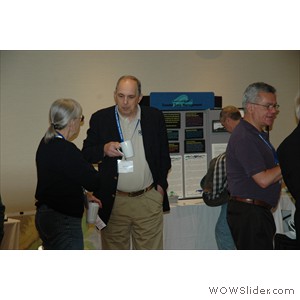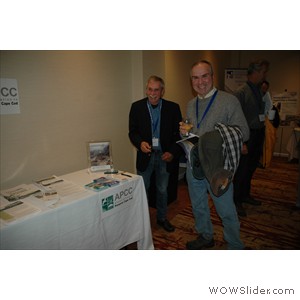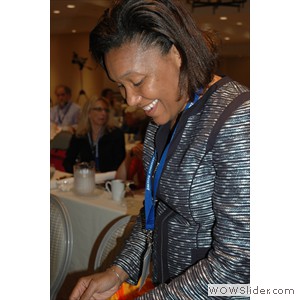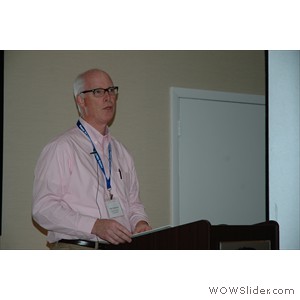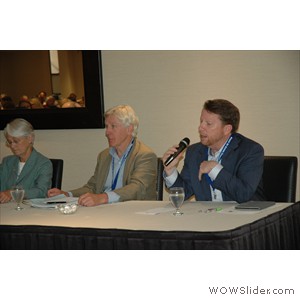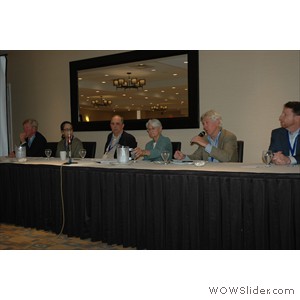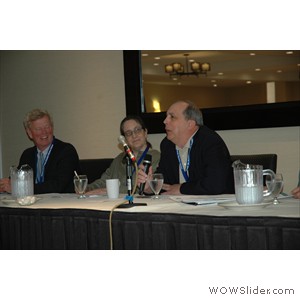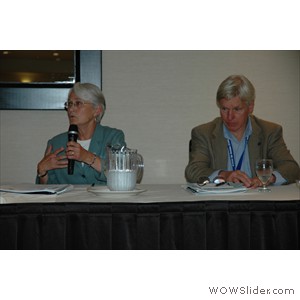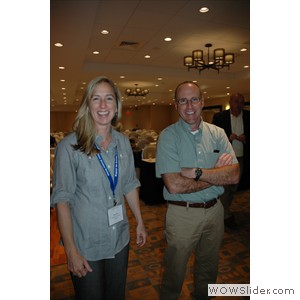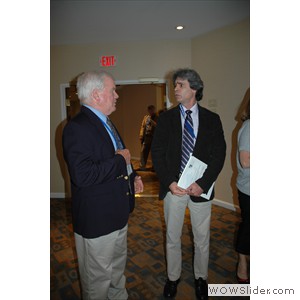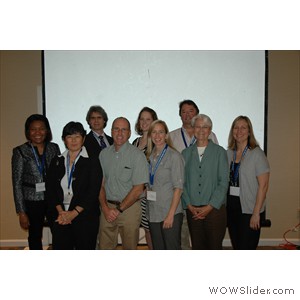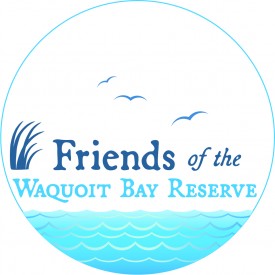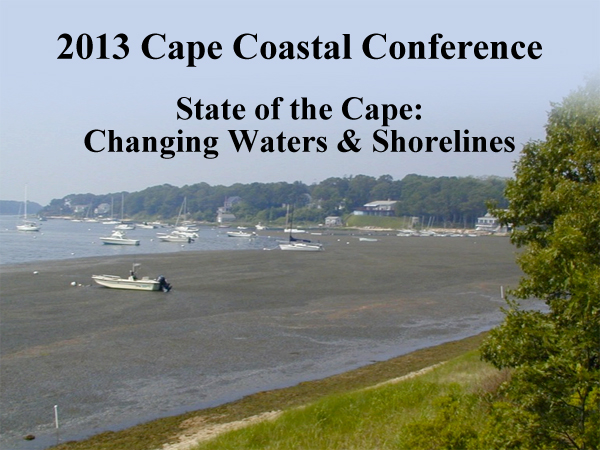
First Annual Cape Coastal Conference
Linking Science with Local Solutions and Decision-Making
The natural coastal resources of the Cape are inextricably linked to the identity, character and economy of the region. The health and sustainability of many of these resources are being threatened by multiple environmental stressors such as nutrient pollution, habitat degradation, inappropriate land use and climate change. To conserve and restore these vital resources it is critical that management and policy decisions draw on the best available science that illuminates how coastal ecosystems function, human impacts on them and consequences of management decisions and actions. In recognition of this need, the Cape Coastal Conference was launched to provide a go-to forum where decision-makers, professionals, volunteers and scientists could exchange information and help advance solutions to resource management challenges. The conference highlighted relevant science, local research, case studies and best management practices that can be instructive to towns in their coastal management efforts.
Day One
June 13, 2013
Morning Keynote: State of the Cape’s Bays & Estuaries: Threats & Impacts
Dr. Chris Neill, Marine Biological Laboratory
State of the Cape’s Ponds: What Have we Learned Through PALSs Program
Ed Eichner, School for Marine Science & Technology, UMASS Dartmouth
Cape Cod Wetlands: Challenges & Opportunities
Jeremy Bell, MA DFG Dept. of Ecological Restoration
Water Quality Assessment of River Herring Spawning & Nursery Habitat
Brad Chase, MA Division of Marine Fisheries
Area Wide 208 Water Quality Management Plan Update
Erin Jackson, Cape Cod Commission
Watershed MVP for Community Wastewater Management & Decision-Making
Tom Cambareri, Cape Cod Commission
Tackling Collaboration Challenges to Address Nitrogen Loading in Shared Watersheds
Edward Leonard, P.E., Wright Pierce
Afternoon Keynote: Modern Climate Change-Science & Global to Local Impacts
Dr. Fiamma Straneo, Woods Hole Oceanographic Institution
Sea Level Change: From Global to Local Scale (presentation not available)
Dr. Jerry Mitrovica, Harvard University
Will the Cape Fall Into the Sea? Future Sea Level Rise & Coastal Change on Cape Cod
Dr. Rob Thieler, United States Geological Survey
Tracking Natural Community Response to Sea Level Rise in Waquoit Bay
James Rassman, Waquoit Bay National Estuarine Research Reserve
Trends in Shoreline Change and Hazards Impacts: Hot Spots & Management Challenges
Greg Berman, Woods Hole Sea Grant & Cape Cod Cooperative Extension
Storm Surge Risk Modeling & Coastal Engineering Adaptations in a Changing Climates
Kirk Bosma, Woods Hole Group
Day Two
June 14, 2013
Nitrogen in Shellfish & Key Considerations for Aquaculture
Josh Reitsma & Diane Murphy, Cape Cod Cooperative Ext. & Woods Hole Sea Grant
Shellfish & Water Quality Restoration in the Town of Mashpee
Rick York, Town of Mashpee
Falmouth Shellfish Aquaculture Demonstration Project
Ron Zweig, Town of Falmouth Water Quality Management Committee
Locally Led Coastal Habitat Restoration to Improve Water Quality
Donald Liptack, US Department of Agriculture, Natural Resources Conservation Service
Town of Falmouth-Permeable Reactive Barriers & Inlet Widening
Jerry Potamis, Town of Falmouth
Town of Brewster-Using an Integrated Approach for Water, Wastewater, Ponds and Land Use Planning
Sue Leven, Town of Brewster and Mark Nelson, Horsley Witten Group
Algae Control by Phosphorous Inactivation
Ken Wagner, Water Resource Services
Solar Water Circulators for Mitigation of Coastal Eutrophication in Santuit Pond
Rick York, Town of Mashpee
Unpacking Adaptation Planning
Lisa Dickson, Kleinfelder
Case Study-Sea Level Rise Planning on the South Shore
Paul Halkiotis, Town of Marshfield
Collaborative Approaches for Addressing Climate Risk
Patrick Field, Consensus Building Institute
Effectively Communicating Complicated Issues
Roger Stephenson, Stephenson Strategic Communications
This conference was developed by the Waquoit Bay Reserve Coastal Training Program (CTP) in response to results of a 2012 needs assessment of local officials on Cape Cod. The event was planned collaboratively by a diverse team of state, regional and local partners.
Planning Partners:
Waquoit Bay National Estuarine Research Reserve
Association to Preserve Cape Cod
Massachusetts Bays Program
Woods Hole Sea Grant Program
MA Office of Coastal Zone Management
Provincetown Center for Coastal Studies
Cape Cod Commission, Three Bays Preservation
American Planning Association MA Chapter
MA Department of Conservation & Recreation
MA Department of Environmental Protection
Waquoit Bay Reserve Foundation



